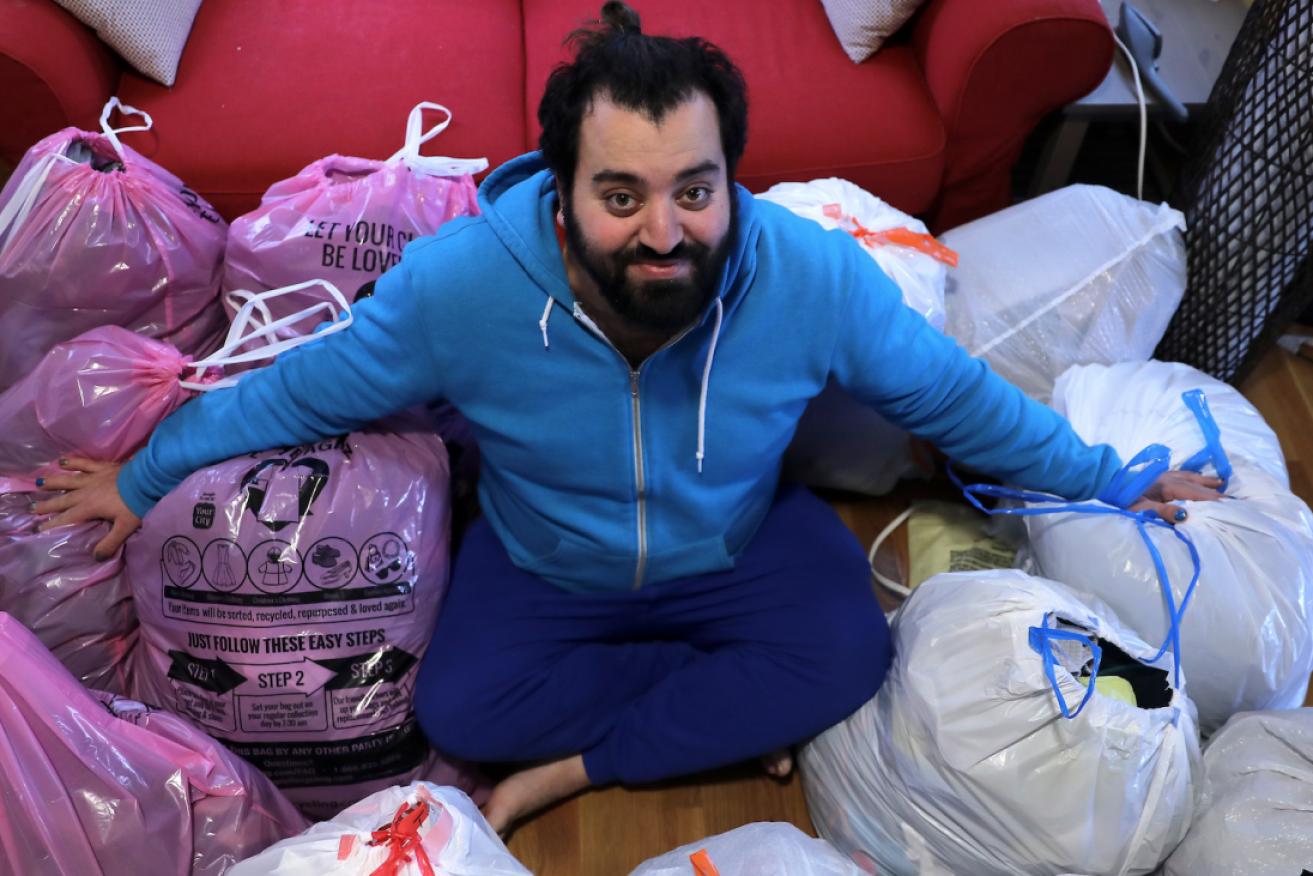KonMari craze: The downsides of Tidying Up

A loyal follower of the KonMari craze declutters his bedroom. Photo: Getty
If you believe the latest KonMari craze could bring you one tidy drawer closer to a happier, less stressed life then think again.
Psychologists warn the decluttering phenomenon which has inspired Australians to empty homes of unjoyful possessions may be unsustainable.
We are, after all, a species that has evolved to collect, possess and desire stuff and have long judged ourselves and others on the kind of stuff we have.
Japanese guru Marie Kondo’s Netflix series, Tidying Up, has sparked a frenzy of extreme cleaning with devotees praising her technique for creating order and lightness in their lives.
However experts say the positive effects could be short lived because of the way humans are hardwired.
Consumer psychologist Dr Stephen Holden, an honorary professor at Macquarie University, told The New Daily throwing things out and living a non-materialist life was as conflicting to people as avoiding sugar and fat.
“It’s similar to the notion that we don’t want to be fat and we know we have to be healthy but we want to eat that piece of chocolate,” explained Dr Holden.
“As humans we are a walking paradox. We have conflicting objectives because wanting stuff is inbuilt into us and we are materialistic but at the same time there is an uncomfortableness about having lots of stuff.
“At the same time as we collect, we offload.”
That internal battle in a world dominated by shopping and advertising could lead to a feeling of failure and frustration.
Some Aussie mums who have been following KonMari since her book The Life-changing Magic of Tidying Up was published in 2011 have admitted to repeatedly falling off the wagon and having to perform a second or third wave of decluttering after buying more things, sometimes replacing items they had thrown out in a fit of KonMari euphoria.
Followers are also split into camps that strictly adhere to the Kondo regime of pedantic clothes folding and those who don’t have time for seemingly unattainable levels of orderliness.
University of Technology Sydney consumer psychologist Adrian Camilleri said KonMari would be a passing fad for many people because consumerism was an instinctive reaction.
“One of the reasons we buy things is to complete a goal; for example, you might have a goal to get fit and healthy. Usually one of the first solutions that comes to mind is to buy something,” said Mr Camilleri.
“Before you know it, you have accumulated new gym clothing, dumbbells, and a smoothie blender. Each time a new goal gets activated the first solution is to buy something.
“Another reason we buy things is their symbolic meaning. The fact that you have a smart water bottle that sends you text message reminders to drink water may be an indulgent purchase but it also signals something – you are a relatively wealthy person who cares about being healthy while also being quite tech-savvy.

Japanese author and consultant Marie Kondo, the founder of the KonMari Craze. Photo: Getty
“The desire to express ourselves through our possessions means that we will often buy things that we do not really need.
“I expect that, for many people, the KonMari method will be a temporary fad that is soon replaced with other goals and more purchases,” he said.
“However, I also expect that there will be a smaller group of people for whom minimalism becomes a central value and who’s first reaction is no longer to simply buy something but to ask: ‘Does this spark joy?’”
It’s the same question Omer Soker, CEO of the National Association of Charitable Recycling Organisations (NACRO), urges people to ask when donating their unwanted goods.
Mr Soker said charities have been inundated in donations since the KonMari television series went to air, with anecdotal reports of a 30% increase at what is already a high-volume time of year after Christmas.
Mr Soker said charities were always grateful for people’s generosity however he offered his own Kondo-inspired advice on sorting items for donation from those for landfill.
Just as Kondo instructs followers to keep only items that “spark joy”, Mr Soker urges them to consider whether the unwanted items will spark joy for others.
“When you’re doing your clean up I would have three piles,” said Mr Soker.
“The first pile is for the items that spark joy in you. The second pile is for stuff that you think will spark joy in others and which you can donate to charities.
“The third pile is for stuff that is not going to spark joy in anyone and needs to be put in the bin or landfill or recycling centres.
“The best way to tell the difference between pile two and three is to ask yourself ‘Would I give this item to my brother, sister or friend or is it something that they can’t use either because it’s got no buttons or has stains and rips.”
Mr Soker said charities were forced to spend $13 million a year dumping 60,000 tonnes of unusable donations in landfill which was money that could be better spent on social justice services.








